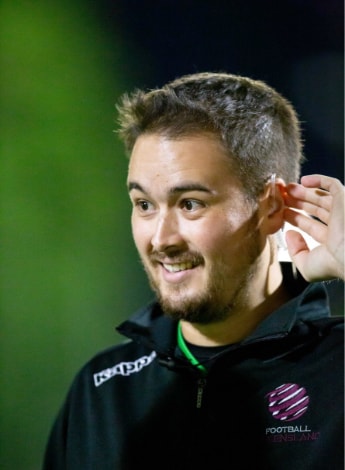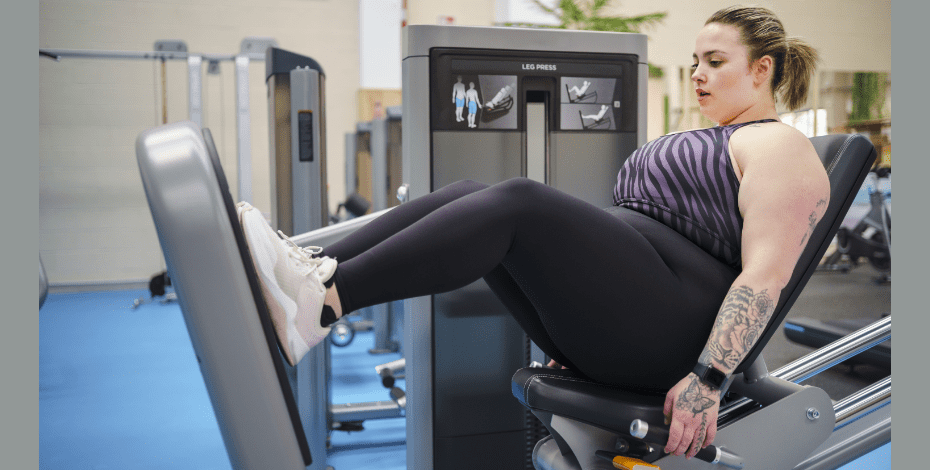
Men’s health: something to Crow about

Jason Crow has witnessed the incredible transformation of men’s health physiotherapy in the decade he has been helping men through prostate surgery rehabilitation. Best of all, says Jason, has been observing just how the topic of men’s health is becoming more mainstream. Melissa Mitchell reports.
Chatting with his father’s friends at a backyard barbecue, Jason Crow no longer has to avoid discussing the work he does as a men’s health physiotherapist. If anything, the casual banter among mates is surprisingly open and honest about the traditionally taboo subjects of prostate cancer, erectile dysfunction and incontinence. Men in the age group primarily affected by issues ‘down there’ are not as closed off as perhaps they once were, Jason says. And that is largely due to the great work being done by the physiotherapy profession, allied health professionals and the medical specialists who work in this complex and challenging field.
This spirit of candour, of men becoming much better at openly discussing their health issues, is a breath of fresh air for Jason who, like many students of his generation, had very little exposure to men’s health during their undergraduate training. Jason, who graduated from physiotherapy at the University of Queensland in 2009 and has a degree in biomedical science, knew very little about men’s health as a postgraduate and admits he was astonished to discover that, at that time, the majority of physiotherapists working in men’s health were women.
As an undergraduate, Jason completed one of four clinical placements at a private practice, Active Rehabilitation Physiotherapy, founded in 1986 by John Fitzgerald in the precinct of the Mater Hospital South Brisbane in 1993. There, Jason, APAM, was exposed to the gamut of physiotherapy services the practice offered (‘everything from oncology to surgery and orthopaedics’) and he knew he didn’t want to work anywhere else.
‘I always wanted to work at Active, but it’s a very popular place because of the opportunities they offer, so I was very fortunate to get in there as a new graduate,’ Jason says. ‘I got to do all my rotations through all the different wards. It was really beneficial for me to initially see patients in the hospital setting as a new graduate. It was great preparation for me in the work I now do seeing patients, down the track in the outpatient setting.’
As part of the Active Rehabilitation Physiotherapy team, Jason soon became involved in conversations with urologists at the Mater Private Hospital about the huge community need for management of men’s health issues. He quickly realised the opportunities for his own career, as well as the challenges men were facing when seeking treatment for their very male conditions.
‘The best thing is when blokes are able to explain the anatomy of their pelvic floor and how to work their pelvic floor muscles to you after having no idea what they were 40 minutes ago.’
JASON CROW, APAM
‘For me, it was just amazing to realise that there were very few male physios treating men’s health issues,’ Jason says. ‘So I thought “That’s not fair; I’d personally want to go and see a bloke if I had to talk about my pelvic floor issues”. So I put up my hand, as a new grad, to become a men’s health physio and learn the ropes. It was the great outcomes we were achieving, and the reality of how much we could influence someone’s quality of life that spurred me on to keep learning in that area.’

Education and practice have gone hand-in-hand for Jason during the almost 10 years of his work in men’s health. He provides pelvic floor rehabilitation for men, honing his skills in both prostate pre-operative and postoperative assessment and treatment. His pre-operative clients, usually referred by a urologist four to eight weeks before surgery, are guided through a four to six-week regime of exercise and education designed to empower them and help prepare them for surgery. Jason often meets clients at a low ebb in their lives after a cancer diagnosis; many are depressed, anxious and concerned about their future. This, he says, is where the physiotherapist draws additionally on their therapeutic and counselling skills.
‘You’re definitely not just their physiotherapist—you’re also talking to them as a bloke and trying to make sure they’re comfortable to talk to you about anything that is part of their cancer journey,’ Jason says. ‘At the start, the men who come are often a little bit anxious or nervous. But usually by the end of the session they are much happier; they’ve got some direction, they’ve got something that they can take complete control over in terms of their exercise program.
I think that’s quite a good thing for these men because up until that point, they can feel as if they’ve been batted through the [health] system and it can be a daunting experience for them.
‘When men are referred to me they have a triad of things they need to take care of—cancer that they’re going to have surgery to remove, incontinence afterwards that they need to see a physio to manage and erectile dysfunction requiring medication management from their urologist, men’s health physician or GP. I counsel about these three things and tell them that I can help them most with their urinary incontinence.’
While many clients relish the opportunity to be proactive about their health and outcomes ahead of surgery, some clients take it to the extreme and over-exercise, falsely believing that more repetitions or more exertion will yield better results, Jason says.
‘Typically I work with these men pre-operatively to train them in how to appropriately perform pelvic floor exercises and educate them in their pelvic floor anatomy. They’re often initially sceptical about whether or not these fiddly little exercises will actually achieve anything. In a short space of time there’s a transformation. The best thing is when blokes are able to explain the anatomy of their pelvic floor and how to work their pelvic floor muscles to you after having no idea what they were 40 minutes ago. You can take someone from not knowing a part of their body to doing a fully fledged exercise program to improve it. That’s always rewarding.’
Of particular interest to Jason are the advances in ultrasound technology—specifically transperineal ultrasound technology—that are allowing patients to understand and perform more accurate pelvic floor exercises. There is evidence, he says, that if patients perform their pelvic floor exercises in the right way they will become continent more quickly.
Jason is also there to help the clients with continence management postoperatively. With many having gone through a pre-operative exercise program, the expectation that there will be some postoperative leakage has been foreshadowed and explained to patients, who will have had discussions with urology nurses about the right continence products to use to maintain their quality of life. What Jason finds is that these patients are highly motivated to get better.
‘Afterwards, it depends on the individual, but we might work with them for three or four months until they get the outcomes that they want, getting dry and returning to continence,’ Jason says. ‘They’re motivated to do everything they can to sort the problem as quickly as possible, sometimes a bit too much . . . and that’s part of the job as well, keeping them on track. Most blokes do too much, too soon.’
Jason’s role has expanded over time, becoming the men’s health team leader at Active Rehabilitation Physiotherapy as well as becoming the team leader at Active’s Annerley practice, just south of the Brisbane CBD. As a senior outpatients physiotherapist, Jason works in the areas of musculoskeletal, sports and orthopaedic physiotherapy; however, his work predominantly involves men’s health. As an advocate for men and their incontinence management, Jason regularly presents at and supports prostate support groups locally and is actively involved in speaking with men’s groups in conjunction with the Continence Foundation of Australia.
‘Over the last few years I’ve been involved in speaking with the Brisbane and wider Brisbane prostate support groups. I’ve gone out to Redcliffe and Ipswich and been invited to speak about pelvic floor and physiotherapy. That’s been really, really good for spreading the word that something can be done,’ Jason says. ‘A lot of those men are unaware of the advances in technology, such as the use of transperineal ultrasound in the management of incontinence, and that these new options could assist their symptoms and improve their quality of life. I give them a physiotherapist’s insight into how they can recover.’
Jason is also actively advocating men’s health as a member of the APA’s Women’s, Men’s and Pelvic Health Committee, where he and others are working behind-the-scenes to redesign a specialist career pathway and encourage more physiotherapists to consider working in the men’s health space. He also teaches in the pelvic health course at the Australian Catholic University, something he wishes had been included in his own education. ‘That sort of thing didn’t happen back when I went through uni,’ Jason says. ‘Graduates are coming out now with a much more rounded knowledge. When I went through uni, men’s health was not a focus.’
Outside of physiotherapy, Jason has been actively involved with another of his passions, soccer. Jason joined Football Queensland as a referee when he was just 13 years old (‘I started mostly for a bit of fitness and a bit of pocket money’) and he has travelled extensively, refereeing games in England, Malaysia, New Zealand and the US. The comradery and the relationships formed with other football officials, as well as the chance to don the football boots each weekend and help the games stay on track, are aspects of officiating that keep Jason keenly interested in the world game.
© Copyright 2024 by Australian Physiotherapy Association. All rights reserved.






